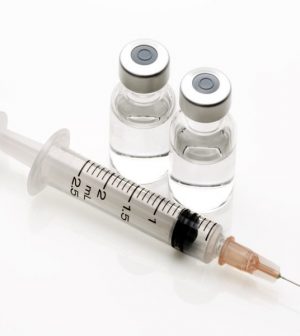- Recognizing the Signs of Hypothyroidism
- 10 Strategies to Overcome Insomnia
- Could Artificial Sweeteners Be Aging the Brain Faster?
- Techniques for Soothing Your Nervous System
- Does the Water in Your House Smell Funny? Here’s Why
- Can a Daily Dose of Apple Cider Vinegar Actually Aid Weight Loss?
- 6 Health Beverages That Can Actually Spike Your Blood Sugar
- Treatment Options for Social Anxiety Disorder
- Understanding the Connection Between Anxiety and Depression
- How Daily Prunes Can Influence Cholesterol and Inflammation
COVID Vaccines May Still Leave Organ Transplant Recipients Unprotected

Organ transplant recipients remain vulnerable to infection with the new coronavirus even after receiving both doses of two-dose vaccines, new research shows. That could mean they should continue following safety measures such as wearing a mask and physical distancing.
In a previous study, the research team found that only 17% of transplant recipients produced sufficient antibodies after a single dose of either the Moderna or Pfizer two-dose COVID-19 vaccines.
This new study assessed antibody responses in 658 transplant recipients after they received their first and second doses. Only 15% had detectable antibodies at 21 days after their first dose, which is comparable to the previous findings.
At 29 days after the second dose, 54% of the patients had detectable antibodies, according to the study published May 5 in the Journal of the American Medical Association.
Those most likely to have an antibody response were younger, did not take immunosuppressive drugs, and received the Moderna vaccine.
“While there was an increase in those with detectable antibodies — 54% overall — after the second shot, the number of transplant recipients in our second study whose antibody levels reached high enough levels to ward off a SARS-CoV-2 infection was still well below what’s typically seen in people with healthy immune systems,” said study author Dr. Brian Boyarsky, a surgery resident at the Johns Hopkins University School of Medicine in Baltimore.
“Based on our findings, we recommend that transplant recipients and other immunocompromised patients continue to practice strict COVID-19 safety precautions, even after vaccination,” Boyarsky said in a Hopkins news release.
People who receive solid organ transplants such as hearts, lungs and kidneys often take drugs to suppress their immune systems and prevent organ rejection, but the drugs can hamper the body’s ability to produce antibodies in response to vaccines.
The latest findings show that “transplant recipients should not assume that two vaccine doses guarantee sufficient immunity against SARS-CoV-2 any more than it did after just one dose,” said study co-author Dr. Dorry Segev, director of the Epidemiology Research Group in Organ Transplantation at Hopkins.
More information
The American Society of Transplantation has more on COVID-19.
SOURCE: Johns Hopkins Medicine, news release, May 5, 2021
Source: HealthDay
Copyright © 2026 HealthDay. All rights reserved.










